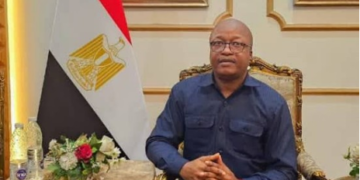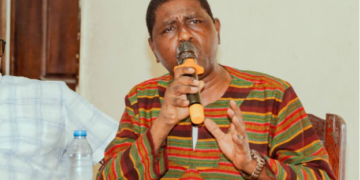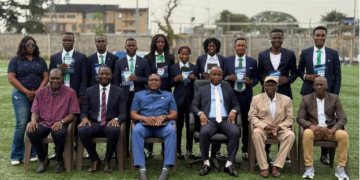By Alieu Amara Suwu
The sixth report of the Fifth Session on the Committee on Appointments and the Public Service on 8th November 2022, in the Well of Parliament, read out the recommendations from the interviews of 10 presidential appointees, including Justice Adrian Fisher, to serve as Appeal and High Court Judges were unanimously approved by the House.
Justice Adrian Fisher, Justice Francis Bank-Kamara, Justice, Abubakarr Sannoh, Justice Abdul Sheriff, Justice Aggrey Aruna and Justice Mohamed Bawoh were all approved to serve as High Court judges. Justice Samuel O.M. Taylor, Justice Tonia Bernett, Michael P.H. Mammie and Justice Hannah Bonnie were approved to serve as Appeal Court Judges.
Justice Adrian Fisher, who was called to the Bar in 2001, in answering questions during the interview, said he did not canvass anyone on the Committee though he could recognize some Hon Members on the panel. On section 135, a section in the 1991 Constitution, he elaborately explained that is a section that makes provision for the appointment of judges in the superior court of judicature; section 135(2) gives the President the right to nominate for approval of Parliament; section 135(3) provides for qualification criteria for persons who are desirous to being appointed judges of the superior court of judicature other than the Chief Justice, and 135(4) is the interpretative section for section 135(2) which essentially explains what defines section 135(3) and section 135(5) is the provision described as a captured provision which simply says a person is barred from a position of a judge simply because he holds a position outside.
Justice Fisher explained that the provision under section 135(3) states how someone is qualified to be appointed judge, someone could be a legal practitioner in Sierra Leone or in a system of laws analogous to Sierra Leone. He said laws in line with section 135: the Legal Practitioner Act, 2000 cover those who are qualified in Sierra Leone. He elaborated that in the Legal Practitioner Act, 2000, there are exemptions in section 15 for persons who do not attend the Sierra Leone Law School to be allowed to practice in Sierra Leone. He added that, in section 15(3) of the amended Act of 2004, if one is working for the state you have an exemption and the said section also provides that if a person is called to the bar in a Commonwealth country for five years under that amendment he is eligible to practice law in Sierra Leone. He said what is clear is that the General Legal Council is responsible for the regulation of lawyers whereas the Judiciary Legal Service Commission is responsible for the appointment of judges and advises the president before nominations are made.
Hon Amadu Kanu said whatever had predicted the question by the Chairman of the Committee bothering on section 135 has to do with some other obvious areas that he did not bother to delve into further so he confined himself to the proviso as Fisher’s appointment as enshrined in subsection 2 of 135. He hence referred to the questionnaire (of the interview form), 9 and 10, which talk about owing a Treasury bill, investment, and insurance policies. Fisher denied having any investment or insurance policy save for car insurance which he did not believe falls under-investment. However, Hon Kanu said car insurance falls under the insurance policy because Fisher (as he wrote in the questionnaire form) that he has a Toyota 4 Runner and Mazda C87. So he said if Fisher claimed not to have an insurance policy he considered him as a risk not just to himself but insuring public. He added that insurance is a form of investment because he is taking his risk to the insured for unforeseen circumstances; he would transfer the risk to the insurance company. He, therefore, noted that the question that says no insurance is inconsistent with question 10. He advised that the peace, security, and tranquility of the nation rest squarely in the job that he would be doing. So in dispensing justice, he has to think of Sierra Leone.
Hon Saa Emerson Lamina said, he has been meticulously following Justice Adrian Fisher, hence has bought his heart for pouring oil on troubling waters, especially within the political gymnastic that has brought peace. He confessed that he is an admirer of Fisher’s tact and wit.
Hon Hassan Sesay brought to Justice Fisher’s attention the Truth and Reconciliation Commission Report and that some of the issues that were addressed therein, have to do with grievances that people harboured based on anger. He reminded him that the justice system has the task of trying to ensure that the population trust what decision they make. He added that the system has to maintain the trust between them and the people for it not to be undermined.

























